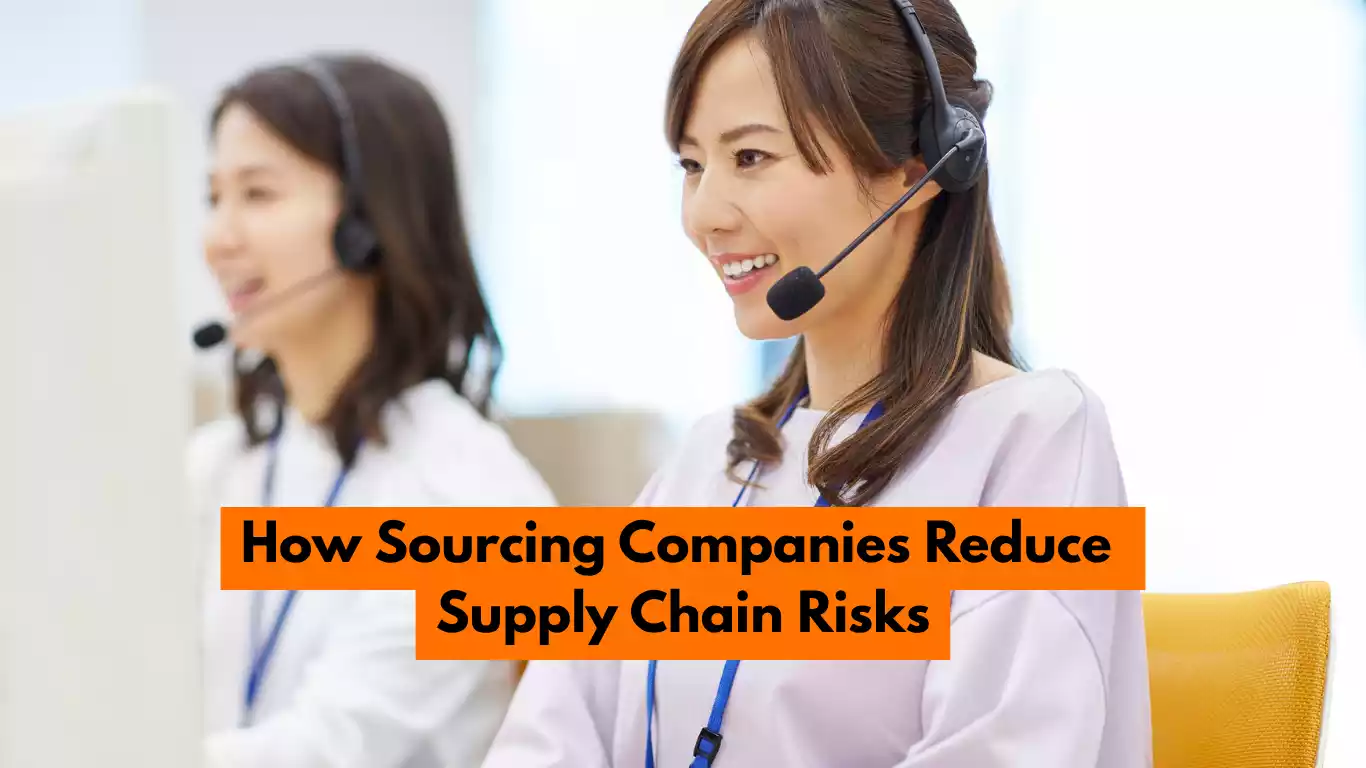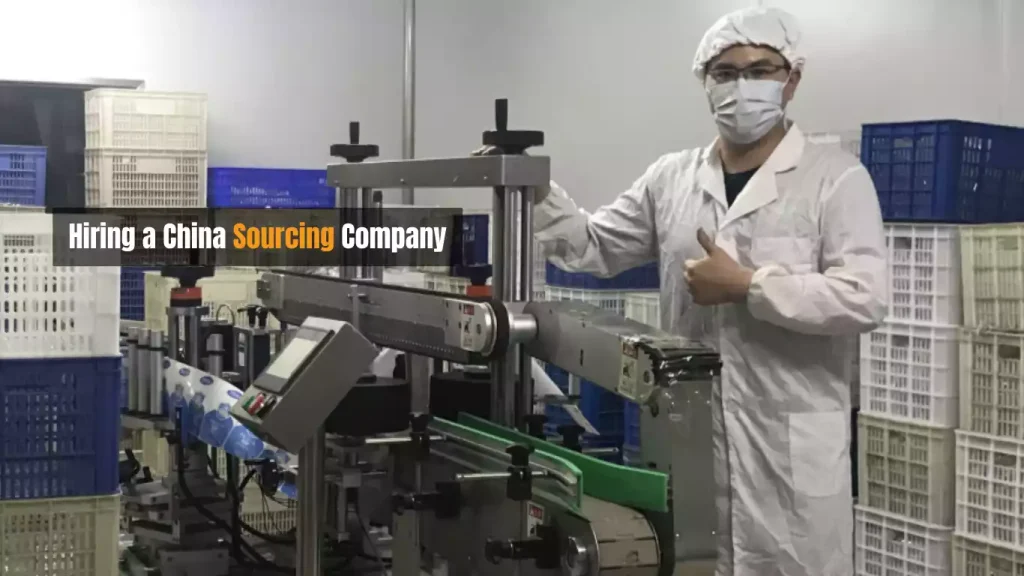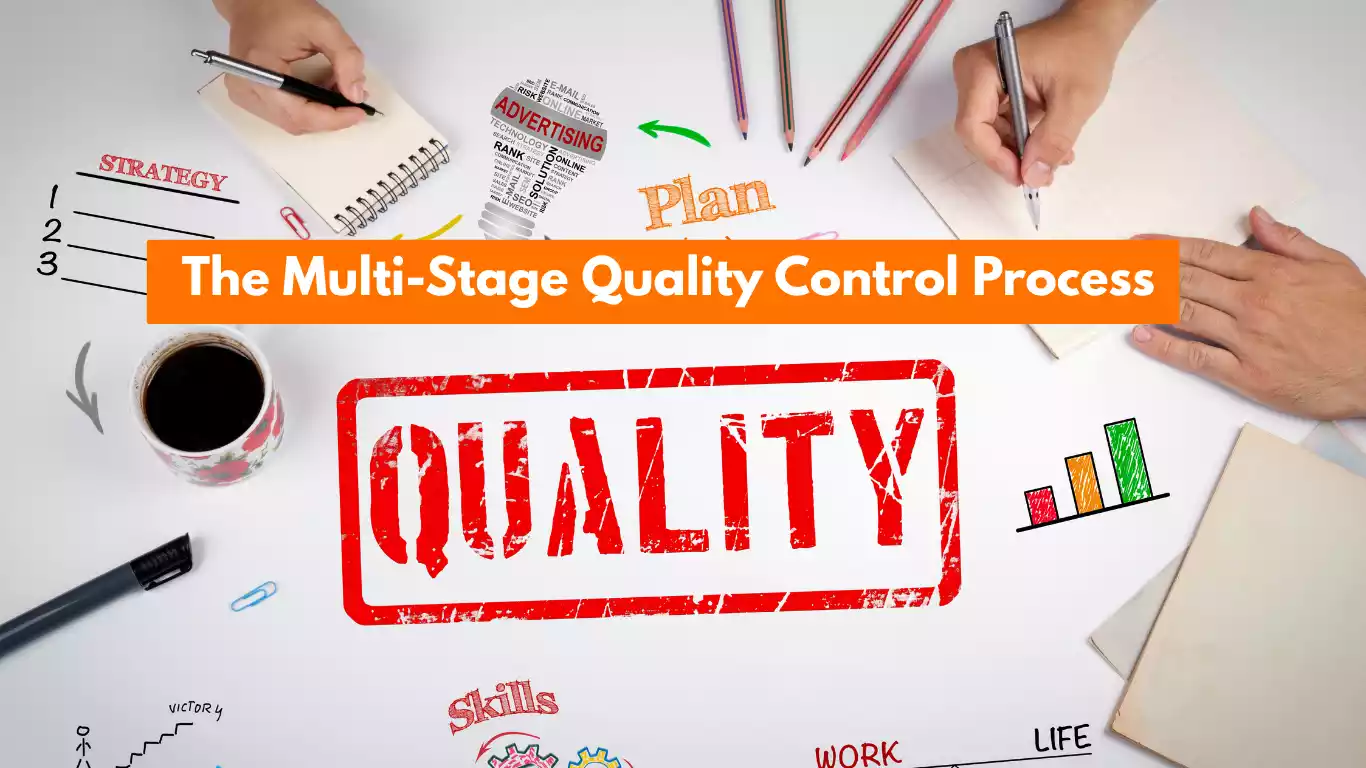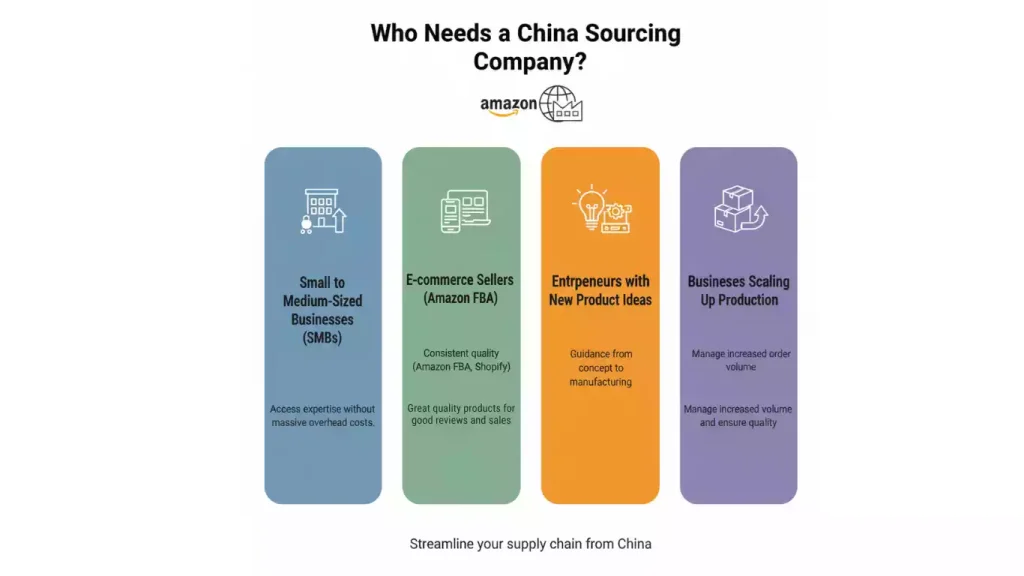
For a small business, a global supply chain can be a powerful engine for growth. It offers access to new materials, advanced manufacturing, and lower costs. However, this engine is surrounded by risk. A single delayed shipment, a batch of defective products, or a supplier who disappears can threaten a company’s finances and reputation.
This is where a professional sourcing company becomes a critical partner. These firms are not just order-takers; they are risk managers. They act as your on-the-ground team, using their expertise to navigate the complex landscape of global manufacturing. They transform uncertainty into a predictable, managed process.
Understanding how they achieve this is key to appreciating their value. A good sourcing partnership is a small business’s best insurance policy against the hidden dangers of sourcing. This guide explores the specific ways a sourcing company supply chain risk mitigation strategy works in practice.

Not every business needs a sourcing company right away. Some small businesses or individuals importing limited quantities may prefer to manage suppliers on their own. However, once you move beyond small-scale orders, the challenges of working with overseas factories become clear. This is where a China sourcing company becomes an important partner.
In short, supply chain risk is any potential problem that could interrupt the flow of your products from the factory to your customer. These disruptions can be minor, like a slight color variation, or they can be catastrophic, like an entire shipment being seized at customs.
For a small business, these risks generally fall into five categories. A supplier might be fraudulent. A product’s quality might be terrible. A hidden fee could destroy your profit margin. Your product design could be stolen. Or a factory’s unethical practices could create a legal and PR nightmare for your brand.
Without an expert partner, you are navigating all these threats alone. A sourcing company’s entire business model is built around identifying and neutralizing these five risks before they can ever affect you.
The most basic risk management in sourcing starts with a simple question: is the supplier real? Scams are common, and many online “factories” are just middlemen or fraudulent listings. A sourcing company acts as your private investigator.
A sourcing company’s first job is supplier verification. They do not just rely on an online directory. Their local team will conduct a deep background check, which includes pulling the factory’s actual business license from government databases.
They verify the supplier’s registration, business scope, and legal standing. This initial step immediately filters out fraudulent actors and ensures you are only dealing with legitimate, registered businesses.
Once a supplier is verified on paper, the sourcing company performs an on-site audit. This is a physical inspection of the factory to assess its true capabilities. They are not just looking at the products; they are inspecting the business itself.
The audit team checks for a Quality Management System (QMS), such as an ISO 9001 certification. They look for clean, organized production lines, well-maintained machinery, and safe working conditions. This audit answers critical questions: Can this factory truly handle your order? Do they have the professionalism to prevent mistakes?

One of the biggest risks is “quality fade,” where you approve a perfect “golden sample,” but the mass-produced order is full of defects. Sourcing companies prevent this by implementing a multi-stage quality control (QC) process. They find problems during production, not after.
As soon as the factory begins production (around 5-10% complete), the sourcing company’s inspector is on-site. The IPC is designed to check the very first items off the line.
The inspector confirms that the factory is using the correct raw materials and components that you approved. They check that the first products match your specifications for color, dimensions, and function. This early check catches fundamental misunderstandings before thousands of units are made incorrectly.
When the order is 30-50% complete, the inspector returns for a DUPRO. They pull items directly from the production line to check for consistency.
This step is crucial for identifying defects that appear during mass production, such as inconsistent stitching on apparel or blemishes on molded plastic. If issues are found, the sourcing company forces the factory to stop and fix the process, saving weeks and thousands of dollars in the process.
This is the final and most critical check, performed when the order is 100% complete and at least 80% packed. The inspector conducts a random sampling of the finished goods based on established AQL (Acceptable Quality Limit) standards.
They perform a full review: checking product function, assembly, packaging, labels, and shipping marks. The sourcing company provides you with a detailed report, complete with photos. You do not pay the supplier’s final balance until this PSI is passed. This gives you ultimate leverage and ensures no defective goods leave the factory.
A sourcing company supply chain risk strategy is heavily focused on protecting your money. Financial risks are hidden in contracts, payment terms, and logistics.
A sourcing company uses its negotiating power to secure professional payment terms. Instead of a 100% upfront payment, they will negotiate a structure like a 30% deposit and a 70% balance after the order passes the Pre-Shipment Inspection.
This simple change shifts the financial risk. The supplier is now motivated to produce a high-quality product to get their final payment. The sourcing company’s reputation and relationship with the factory are what make these professional terms possible.
“Hidden fees” in logistics can destroy a small business’s budget. These often hide in confusing shipping terms. Sourcing companies are experts in Incoterms (International Commercial Terms).
They will negotiate the right term for you, such as FOB (Free On Board) or DDP (Delivered Duty Paid). This clarifies exactly what you are paying for and prevents surprise bills for port fees, customs, or inland freight. This expertise turns an unpredictable cost into a fixed, budgeted expense.
When sourcing overseas, one of the greatest fears is having your unique product design stolen and copied by the factory. Sourcing companies use a multi-layered legal and strategic approach to protect your intellectual property (IP).
A standard American NDA (Non-Disclosure Agreement) is often unenforceable in China. A professional sourcing company knows this. They will have the supplier sign an “NNN” agreement, which stands for Non-Disclosure, Non-Use, and Non-Circumvention.
This is a Chinese-language contract, enforceable in Chinese courts. It explicitly forbids the factory from using your idea, becoming your competitor, or selling your product to other customers. This is a specialized legal tool that is a core part of risk management in sourcing.
The most clever strategy a sourcing company can deploy is “splitting” your production. They will have one factory manufacture a unique component, a second factory produce the main body, and a third, trusted partner handle final assembly and packaging.
This “black box” method ensures that no single supplier has the complete design or “recipe” for your product. This strategic fragmentation makes it nearly impossible for your product to be easily copied.

A sourcing company compliance strategy protects you from legal and reputational ruin. Partnering with a factory that uses child labor or pollutes the environment can get your products seized and your brand publicly shamed.
Sourcing companies conduct social and ethical audits to ensure factories meet international standards. These audits, often based on frameworks like SMETA (Sedex Members Ethical Trade Audit), are not optional.
Inspectors check for critical violations. They will review payroll records to look for fair wages and reasonable working hours. They will walk the factory floor to check for safety hazards, like blocked fire exits or a lack of protective gear. Most importantly, they verify that there is absolutely no child labor or forced labor.
If a factory fails a compliance audit, a sourcing company does not just walk away. They work with the factory to implement a Corrective Action Plan (CAP).
This plan outlines the specific violations and gives the factory a clear deadline to fix them. This might involve installing new safety guards, providing proper ventilation, or fixing payroll systems. The sourcing company then follows up to ensure the changes are made, helping to build a more responsible and stable supply chain for the long term.
If you have a unique product idea but no experience in manufacturing, a sourcing company can guide you through the whole process, turning your idea into a real product.
As your business grows, your orders get bigger and more complex. A sourcing company helps manage this increased volume efficiently, ensuring consistent quality and timely deliveries.
Not all sourcing companies are the same. When you’re looking for the right partner, consider these points:
How long have they been in business? Do they have good reviews or testimonials? Ask for references if you can. Experience means they’ve learned lessons and built strong relationships.
Can they communicate clearly with you in your language? Do they respond quickly? Good communication is key to avoiding problems.
How do they charge? Is it a flat fee per order, a percentage of the product cost, or something else? Make sure it’s clear and you understand all the costs involved.
What are the steps they follow from finding a factory to shipping? A clear, detailed process shows they are organized and professional.
While many companies are general, some might have more experience with certain types of products (e.g., electronics, textiles). This can be a big plus.
A supply chain is a web of interconnected risks. For a small business, trying to manage supplier vetting, multi-stage quality control, financial negotiations, IP protection, and ethical compliance is not feasible.
Partnering with a sourcing company is a strategic decision to outsource this entire risk management function. They act as your shield, using their expertise, on-the-ground presence, and established processes to identify and neutralize threats. This allows you to focus on growing your brand, confident that your supply chain is stable, secure, and professional.
The biggest risk is supplier risk, which includes scams, poor quality, and IP theft. A sourcing company mitigates this through vetting, audits, and strong contracts.
It involves conducting social and ethical audits (like SMETA) to check for fair labor, worker safety, and environmental protection.
Alibaba is a directory, not a risk manager. A sourcing company physically vets factories, inspects your products, and enforces contracts on your behalf.
They use strategies like China-specific NNN agreements (not NDAs) and splitting your manufacturing across multiple factories so no one supplier has the full design.